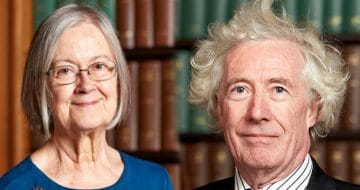Baroness Kennedy describes David Perry’s decision as ‘a source of shame’

A top London barrister has come under fire for agreeing to prosecute pro-democracy campaigners in Hong Kong.
David Perry QC of 6KBW College Hill has reportedly agreed to act for the Hong Kong government next month as part of a prosecution against media mogul Jimmy Lai and eight other pro-democracy activists accused of taking part in a 2019 anti-government protest.
Hong Kong’s court of first instance on Tuesday granted the justice department’s application to fly in Perry to handle the case, noting its complexity and “real and significant impact on the exercise of the freedom of assembly in the future”.
It is alleged protestors disregarded police orders by turning an approved assembly into a march, which was not permitted.
All nine defendants were charged jointly with two offences: organising an unauthorised assembly and knowingly taking part in an unauthorised assembly. The trial has been set for 16 February.
Perry’s decision to accept the brief has been challenged by senior legal figures.
Speaking to The Times (£), Baroness Helena Kennedy QC of Doughty Street Chambers and director of the International Bar Association’s Human Rights Institute, said:
“I cannot fathom why any reputable British barrister would provide a veneer of respectability to actions which are contrary to democracy and the rule of law. This decision will become a source of shame.”
Lord Falconer of Thoroton, the shadow attorney-general and former lord chancellor, said: “He must withdraw as he cannot continue in that role and remain consistent with the values of the UK. He is prosecuting some of the most well-known democracy campaigners.”
China imposed a national security law on Hong Kong in June last year. Since then, several thousands of individuals, including prominent politicians and campaigners, have engaged in mass street protests, against the crackdowns.
Overseas barristers require special high court approval before they can practise in Hong Kong on an ad hoc basis, and are mainly used if external advice is needed for complex cases.
British barristers traditionally accept work under the ‘cab-rank rule’; that is, that they will accept instruction on cases within their knowledge and expertise provided they are able to do so. However, the bar regulator stipulates in its Code of Conduct a number of exceptions to the principle, including that it does not apply if accepting a brief would require a barrister to undertake foreign work.
Perry has already tackled high-profile cases in Hong Kong, including the bribery trial of the former chief executive Donald Tsang in 2017.
Perry has been contacted for comment.

